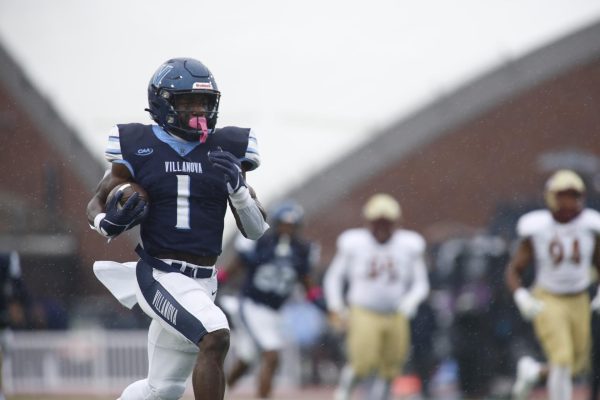SGA considers legal filesharing services
December 2, 2004
Due to the recent onslaught of lawsuits against users of illegal filesharing programs, many students have cut back on their use of such programs.
However, many still find value in being able to download single songs rather than buying entire CDs. To this end, the Student Government Association is actively working to bring a campus-wide filesharing program to students.
SGA has already spoken to one such company, the Ruckus Network. Ruckus offers a variety of downloading options – movies, music, local bands and student and faculty authored content. All of the files can be shared legally.
Several universities across the nation offer similar programs. For instance, Penn State has a subscription to Napster, and the school pays for campus-wide use. Some students there have protested what they call a misuse of funds, but others have welcomed the alternative to otherwise illegal downloading programs.
SGA has yet to pitch the idea to the administration, so they have not yet gotten final approval for such a program. “We want to build student support [for the idea] before pitching it to the administration,” Jon Ambrose, the executive aide for SGA, said.
Building student support was the idea behind bringing Ruckus to campus for a day. They were scheduled to come to the Italian Kitchen on Friday, Nov. 19, but a personal emergency prevented the Ruckus representative from attending. Future events involving Ruckus are also planned. “We want to have an information session to show students what Ruckus offers, and also to get student feedback,” Josh Weiner, the director of communications for Ruckus, said.
“The only way I’d use it is if the University paid for it,” sophomore Matt Catalano said. “But then I’d be mad that the school is wasting my tuition. It’s not worth it if people want to be on these pay for download sites; they can do it themselves, so there’s no point in wasting our tuitions on something that most people will not use.”
Sophomore Megan Wahl concurred, saying, “I wouldn’t use it if I had to pay for it, but if it was set up by the school I would use it.”
Ruckus launched on Oct. 1 and is currently offered at four universities: Northern Illinois University, SUNY-Alfred, University of North Carolina and Bentley University.
According to its website, Ruckus offers “50-plus Hollywood and popular independent titles at all times, 600,000 licensed tracks (and growing) from major and independent labels, daily articles, charts and information written by our publishing staff and students like you, and local area and campus generated content.”
Schools typically pay about $10 per student per month for the service.
As far as how the University would pay for such a program, no final recommendations have been made. “You can get corporations to sponsor a semester, or maybe alumni or the administration would fund the program,” Ambrose said. “Or maybe it will be tacked onto the tuition. We haven’t figured that out yet.” That will come once a specific company is selected and the idea has been pitched to and approved by the administration.
“Each university is different, so we work with each one on an individual basis,” Weiner said in regards to how the University would pay for the program.
According to Father John Stack, O.S.A., vice president for Student Life, the University does not know enough about the planned program to make a decision. “I would have to see what the students proposed, the cost of it and the implications of it technologically, how it would affect the system before I made any comments,” he said.
“I don’t want to dismiss it out of hand; the students would probably benefit from it.”
“This is an opportunity for Villanova to be on the cutting edge of the nation,” Ambrose said. “There are only about 20 to 25 schools in the whole country that have this.”
In March of 2004, nine University students were among 89 individuals named in a lawsuit filed by the RIAA against students at 21 universities who were illegally sharing files.










